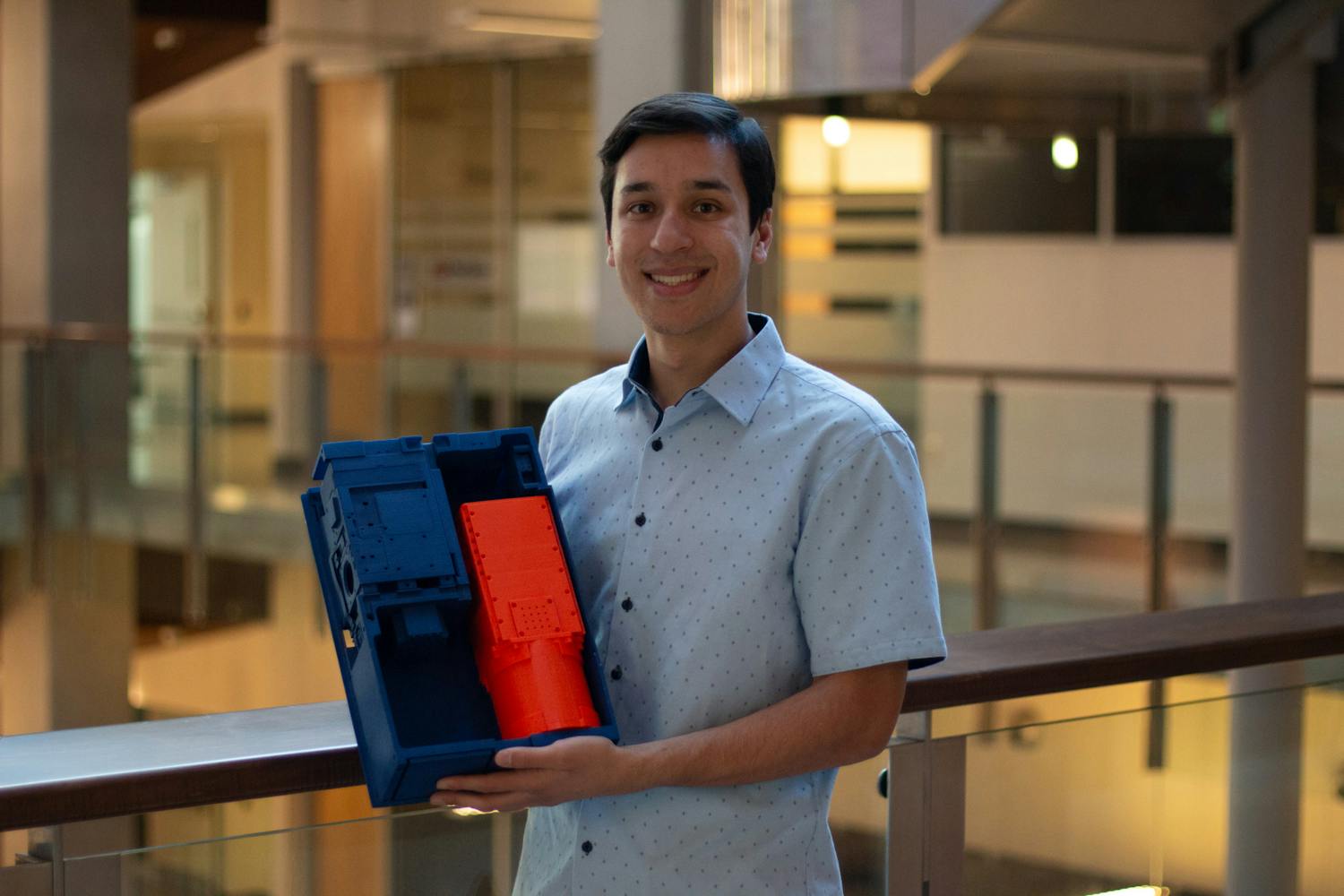Between time zone differences, language barriers and more, international students face challenges unique to their experience at ASU.
Since the arrival of COVID-19 in Arizona over a year ago, some international students have faced the pandemic differently from their peers who call the state home.
Sarah Suhail first came to ASU from Pakistan in 2011 as a Fulbright Scholar and is currently pursuing a Ph.D. in women and gender studies. Upon receiving a dissertation completion fellowship from the University, Suhail wasted no time embarking on her research on a range of topics including women and slavery, violence against transgender women and the LGBTQ+ community in Pakistan.
Though the pandemic has thrown its challenges at her, Suhail hasn't let anything deter her from her studies, even when she was diagnosed with ovarian cancer in 2015.
"It was a really, really tough time," Suhail said. "I was really fortunate that I had a very loving partner and my father and sister to support me in my time here."
The pandemic and another round of chemotherapy treatments happened concurrently for Suhail this past semester, and the lack of in-person interaction has been one of the most prominent challenges.
"The pandemic just made it that I was at home all the time. And I couldn't go and attend any of the University events or anything," Suhail said. "Zoom and Zoom events just don't cut it. I just feel like the interaction is not the same."
Hussain Farwa, a graduate student studying urban and environmental planning, moved to the state a month ago from Pakistan.
"You're not in a real classroom, you know, so that experience is lacking," Farwa said. "There is no sense of community right now."
To combat this, Farwa suggests more outdoor, socially distanced activities instead of online events. Playing volleyball with friends in her free time and making an effort to attend classes in person has helped her personally, she said.
Suhail has taken up hiking different trails in the Valley and has even started up a mutual aid network with her partner to support Pakistani families struggling due to the pandemic.
"I think all of us have it in us to help each other," Suhail said. "This pandemic brings it in sharp relief that these things we thought we can take for granted, we can't."
Daniel Hoyle, director of the International Students and Scholars Experience Center at ASU, said the organization's main purpose is to support its international students, especially during these challenging times.
The ISSEC offers services like immigration status advising, career development, language resources and anything else students are "looking for and need during their time here in pursuing their goals at ASU," Hoyle said.
The organization has transferred many of its services online through mediums like Zoom, email and online appointments. "We have adapted things and styles to fit the COVID time period," Hoyle said.
Faculty and staff have worked together with the ISSEC to implement "time-zone friendly" class sections. For instance, a professor could teach a class at 7 p.m. MST for students in China to start their day at 9 a.m.
Farwa, who had been taking classes online from Pakistan last semester, recalled the difficulty of a 12-hour time difference.
"I used to take my classes at night and used to sleep in the morning," she said.
Though the ISSEC offers a variety of professional and academic support, the overall wellbeing of its international students is just as important.
The organization regularly hosts events and socials to help students bring a piece of home to ASU. This past week, for example, the team worked to put together events in celebration of the Lunar New Year.
The group also launched the ASU Global Peer Mentor program, which matches first-year students taking classes from their home country with current ASU students.
As many students were unable to physically be on campus for their classes due to recent travel restrictions, the ISSEC started the program to be a "first connection point" for students abroad, Hoyle said.
"The University can be such an overwhelming place," Suhail said. "Having an international student mentor who maybe has had similar experiences really helps."
Farwa remembered her classmates helping her and showing her around the area.
"We did have our challenges, but then at the same time, there were so many people who were available to help us," Farwa said. "I was very overwhelmed by the way people treated us."
Suhail said she was very grateful to have the support of her professors and advisors while she worked on her dissertation, as when she received the fellowship, her cancer recurred for the third time.
Since moving here, Suhail would regularly travel back and forth from the U.S. and Pakistan to visit her family. She has been in Arizona though, since November 2019, as travel restrictions and being immunocompromised from her chemotherapy has barred her from returning.
"That has been really painful but at the same time, my family wants me to be safe and I want to be safe," Suhail said, explaining that she is awaiting getting vaccinated to be able to travel again.
"The language back in Pakistan, the land, the culture, it draws me. It's like a part of my blood."
Reach the reporter at sreyes23@asu.edu and follow @r_salma_ on Twitter.
Like The State Press on Facebook and follow @statepress on Twitter.
Continue supporting student journalism and donate to The State Press today.




